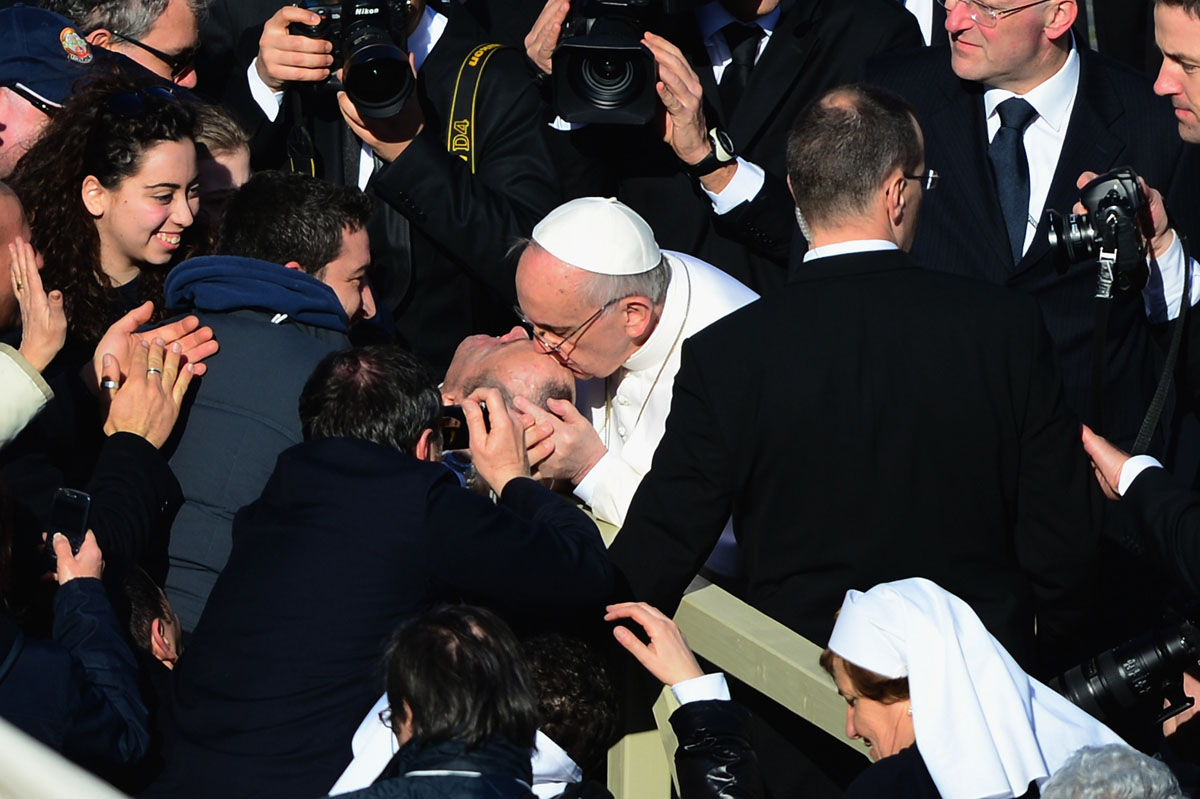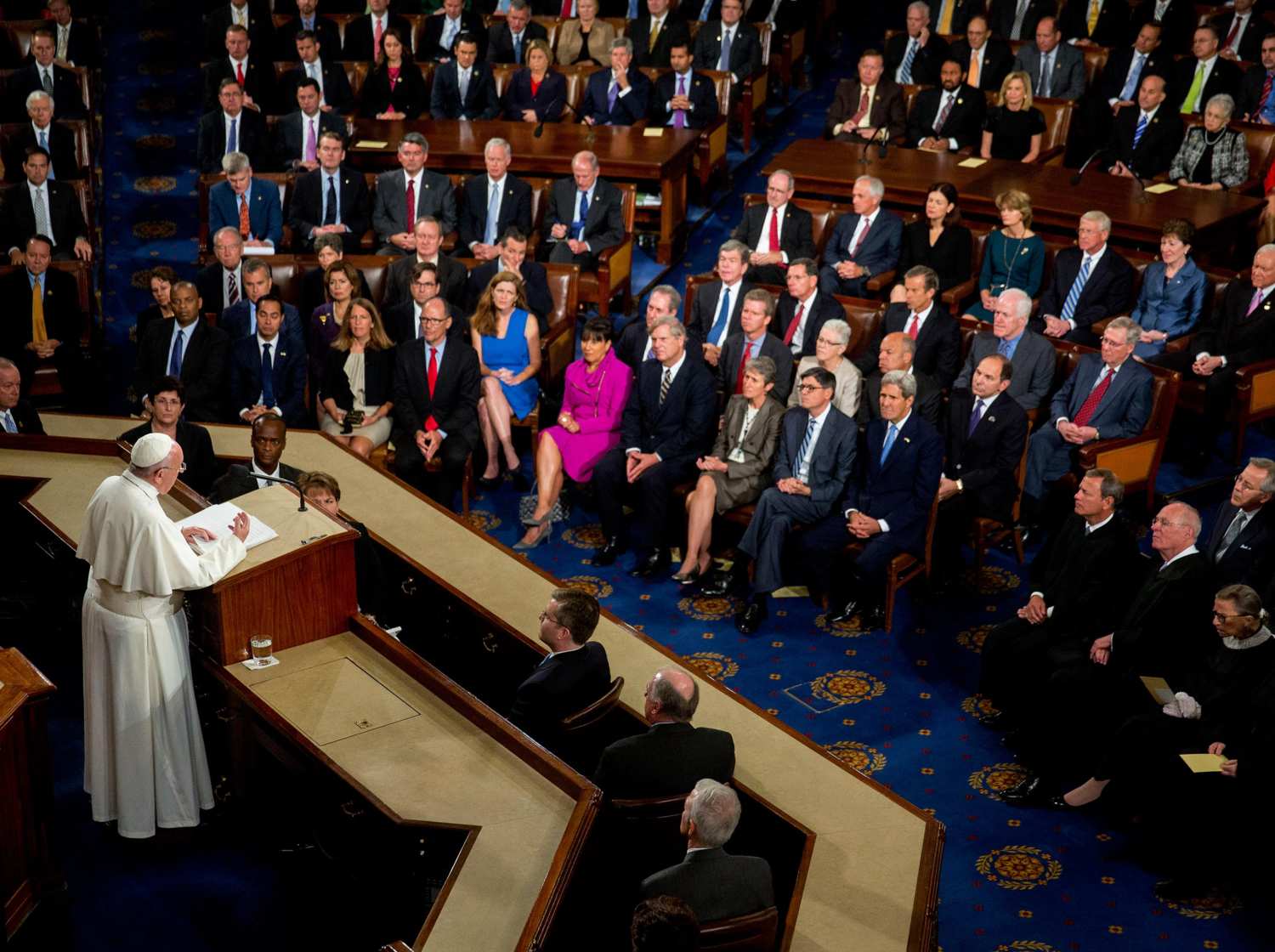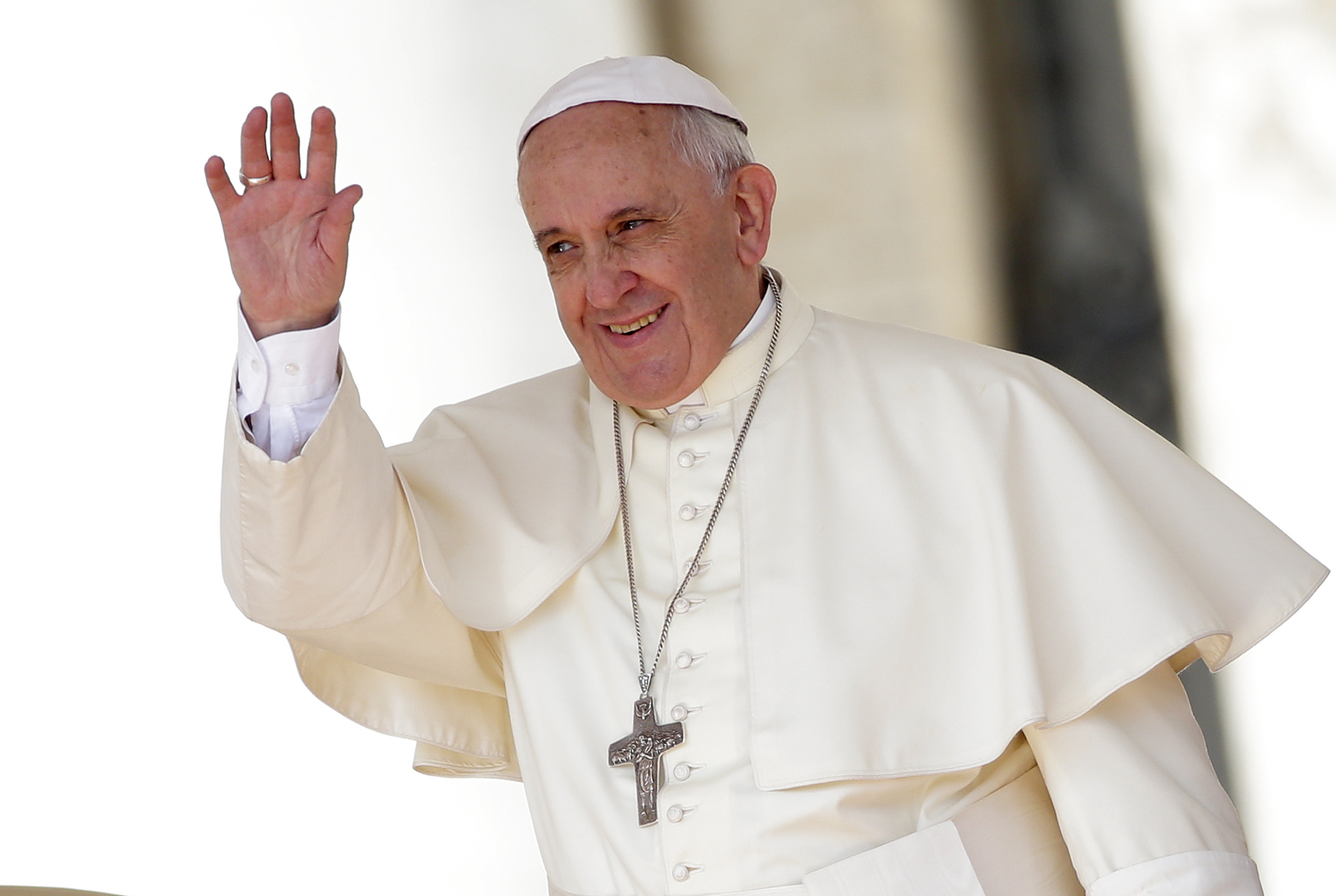By: Andrew Peoples

In his first year in office, Pope Francis has already marked the beginning of what may be a new era for the Catholic Church. From his more accepting stance on gays and lesbians within the Church to his respect for atheists and belief that the Church should retreat from its role in the world’s culture wars, the new Pope has made a clear shift from his predecessor’s more uncompromising attitudes. This shift has allowed him to win him more attention than any religious leader in recent memory, and contributed to him being named Time Magazine’s 2013 person of the year. The question for Catholics and non-Catholics alike, however, is whether his seemingly more inclusive comments indicate merely a change in attitude from one man or if they will translate into real policy changes for the Church.
The first major indication of Pope Francis’ inclusive attitude came as early as his first trip abroad after taking office. The pope first wowed observers in Brazil by meeting with the poor, the sick, and even drug offenders directly, rather than waving at them from behind the bulletproof glass of the Popemobile. Then on the way home, when a reporter asked him about homosexuals in the Church, the pope responded that they should be “integrated” into the Church rather than excluded from it. He even went so far as to ask, “Who am I to judge?”
The change indicated by the pope’s remarks is smaller and more subtle than may be immediately apparent, portending a small shift in attitude rather than a major shift in Catholic policy. Francis’ recent predecessors considered homosexuality not only a disorder but also an “intrinsic moral evil.” The new pope’s remarks indicate that the church is backing down from this stance only slightly – he gave no indication that homosexual acts are no longer considered a sin. Rather, he seemed to accept that homosexuality is a natural and permanent condition, which the church cannot condemn absolutely. The Catholic Church still considers acting on one’s feelings for a member of the same gender a sin that requires forgiveness, according to a statement released by the Vatican after the pope’s remarks. Thus, for the average gay or lesbian Catholic, nothing has really changed.
Instead, the real effects of this tonal shift will be felt within the hierarchy of the Church itself. Previous popes have endeavored to rid the Church of gay priests, unfairly conflating homosexuality with pedophilia. Now Francis is preaching that as long as they remain celibate, they may remain in their positions in the Church and no longer fear expulsion.
The LGBT community is not the only group that the pope has addressed with a more accepting attitude than his predecessors since taking office. In an open letter to the Italian newspaper La Repubblica, Pope Francis discussed his views on atheists as well. The letter was in response to two open letters from the paper’s founder and avowed atheist Eugenio Scalfari. In one of Scalfari’s letters, he asked the pope whether “God forgives those who do not believe and do not seek faith.” In response, Pope Francis broke with tradition once again, stating that “God’s mercy has no limits, if you go to him with a sincere and repentant heart, the issue for those who do not believe in God is to obey their conscience.” Where his predecessor often condemned moral relativism and the failure of modern societies to recognize the “absolute truth” of God, Pope Francis took a lighter track, arguing, “Truth is a relationship” with God.
The pope’s remarks about atheists indicate another shift of tone, if not one of policy. The Vatican quickly released a statement clarifying his remarks and insisting that those who reject the teachings of Jesus Christ cannot be saved. Vatican spokesperson the Rev. Thomas Rosica wrote, “All salvation comes from Christ… Hence they cannot be saved who, knowing the Church as founded by Christ and necessary for salvation, would refuse to enter her or remain in her.” The press release attempted to clarify Pope Francis’ role as a theologian, even limiting it by stating that the pope is, “first and foremost a seasoned pastor and preacher… his words are not spoken in the context of a theological faculty.” The statement may be a sign of tension between the new pope and the more conservative members of the Vatican, but more likely it is an indication that Pope Francis’ changes are more of attitude than Catholic doctrine. The pope wishes to end the condemnation of atheists and agnostics that was prevalent under the previous popes, without necessarily making a full break with the past by proclaiming their potential salvation without Christ.
While there seems to be something of a disconnect between the pope’s ideas and the Church’s policies, in a faith-based organization, attitudes and practices are often the same thing, and the pope’s more relaxed attitudes are causing shifts in certain areas of the church’s focus. In his first in-depth interview, Pope Francis spoke of a retreat from the Church’s commanding position in the battles over many of the world’s social issues. Speaking to Antonio Spadaro of a Jesuit publication called America, the pope discussed contraception, abortion, and gay marriage, stating that on these issues the “teaching of the Church… is clear, and I am a son of the Church, but it is not necessary to talk about these issues all the time.” The Catholic Church in recent years has played a major role in worldwide political and social conflicts regarding gay marriage and the availability of abortion and contraception, but Pope Francis warns that it “must try to find a new balance.” During his tenure he may try to scale back its involvement.
The changes are not limited to these social issues. In another interview, this one with the Italian newspaper La Repubblica, the pope discussed proselytism, among many other topics. He called proselytism “solemn nonsense,” claiming instead, “we need to get to know people, listen, expand the circle of ideas.” He also accused past Church leaders of narcissism and clericalism. His comments about proselytism could mean fewer conversion efforts in the future, while his views on past Church leadership are consistent with his reorganization of the Curia, the Vatican bureaucracy. The pope seems to be seriously interested in changing certain parts of the Catholic Church.
A priest from Melbourne, Australia, found in September that Pope Francis had signed off on his excommunication, probably over the priest’s support for gay marriage and women’s ordination. While he may take a more open approach to groups not normally accepted by the Catholic Church, members within the Church can still go too far and be punished, in this case by the worst punishment the Church can deliver. Pope Francis is the most progressive pope in recent history, but at the end of the day, change comes slowly to organizations as old and large as the Catholic Church.

